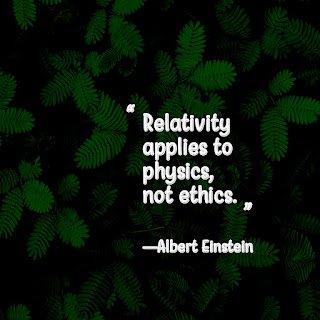The Moon prolonged, "Whatever is lawful, is plain, and whatever is unlawful, is plain; between the two of them, are doubtful matters, about which not many people know. Thus, he who avoids doubtful matters, clears himself with regard to his religion and his honour, but he who falls into doubtful matters, falls into what is unlawful; he becomes like the shepherd who herds his sheep around a sanctuary, all but grazing in it. Truly, every king has a sanctuary, and truly, Allah’s sanctuary, is His prohibitions.
The Moon thereupon paused, and told the Owl, "You know what? I'm feeling like, I want to tell you a story. Would you like to listen my story?" Immediately, the Owl replied, "Of course, tell me!""So," the Moon responded, "The story about Two Thieves!" said the Moon. "The wicked and brutal thieves?" the Owl reacted. "Not really! They were just subdued by their ego, so as their actions looked ridiculous, and deserved to be laughed at," the Moon replied, smiling, as she began.In the tongue of men, a couple of Thieves, Murari and Hari Hara, knowing of a Calf, was kept in an Ox’s stall, had determined to steal it away in the dark. They collected information from local people, regarding the location and condition of the calf. A local asked Murari, 'Why did you ask?' Murari replied, 'I'm just concerned, doesn't it, loving animals promoting good morals, right?' The questioner nodded, and asked Hari Hara, 'And you, why?' Hari Hara, somewhat flustered, but with a serious face, said, "It's nothing, it only comes from my human nature. Actually, I do not want to say this, isn't it if the right hand gives a charity, the left hand shouldn't know?' The questioner left, nodding. Afterwards, they appointed the hour of midnight, for meeting at the informed place, to accomplish their evil design.It was agreed, one of them, Murari, was to keep watch on the outside, whilst the other, Hari Hara—whose body was stocky and strong, since he used to serve as a security guard—was to go into the stall and lift the Calf out of the window.On the night proposed, they accordingly went to the place, and one of them—i.e. Hari Hara, as agreed—entered the window of the Ox’s stall, whilst Murari, that remained on watch, not without much fear of detection, desired his companion to make as much haste as possible; but, Hari Hara, he that was within, answered that since the animal was so heavy and unmanageable, he could not lift him from the ground, much less to the window.Murari, with many oaths, replied, 'I believed, it was the devil of yourself you had to deal with.' But Hari Hara replied, 'Now, I cannot even get out myself, he has got such fast hold of me.' The companion, Murari, being no longer able to stay with safety, ran off, and left Hari Hara to his fate.In the distance, the people watched and laughed out loud at the two thieves demeanor. Then, what was really happened? After Murari and Hari Hara were asking about the Calf, people became suspicious.The fact was this: the Calf had been removed from the stall soon after the Thieves had seen it there, to make room for a Bear that had been brought into the town as a show; and it was this great beast, Hari Hara had the misfortune to encounter, and who kept hugging him till the morning, when he was discovered by the people and taken to prison.Murari, who was waiting in the hiding place, was getting worried since his companion didn't come home yet. He then opened the window, but saw people, trampling Hari Hara. He heard Hari Hara defending himself in frot of the people, saying, 'I had no intention of stealing. Look, I'm just accompanying the bear, sleeping!' Instantly, he closed the window, and sat up. After calming down, he bent his knees, and sadly, crooning,Trouble, he will find you, no mater where you goNo matter if you're fast, no matter if you're slowThe eye of the storm, or the cry in the mornYou're fine for a while, but you start to loose controlHe's there in the darkHe's there in my heartHe waits in the windsHe's gotta play a partTrouble is a friendYeah, trouble is a friend of mine *)The Moon finished her story by saying, "The innumerable dangers, which attend the wicked, are such as make an honest man shudder at the thought. There are not only those from the law and the enmity of mankind towards them, but dangers surround them on every side, from the perilous situations in which they are perpetually placed.It was strange, that men should give up safety, tranquillity, and a good name, for danger, trouble, and infamy; preferring idleness and dissipation for a short period, accompanied with shame and disease—to that wholesome labour which brings with it opulence, health, and most commonly long life. A knave may gain more than an honest man for a day, but the honest man—for Allah's blessing—will gain more than the knave, in a year. And Allah knows best."
Citations & References:
- Mohammad Rahman, Phd., Your Money Matters - The Islamic Approach to Business, Money, and Work, IIPH
- James Northcote, RA, One Hundred Fables, Originals and Selected, J. Johnson
*) "Trouble Is A Friend" written by Lenka Kripac & Thomas Salter















